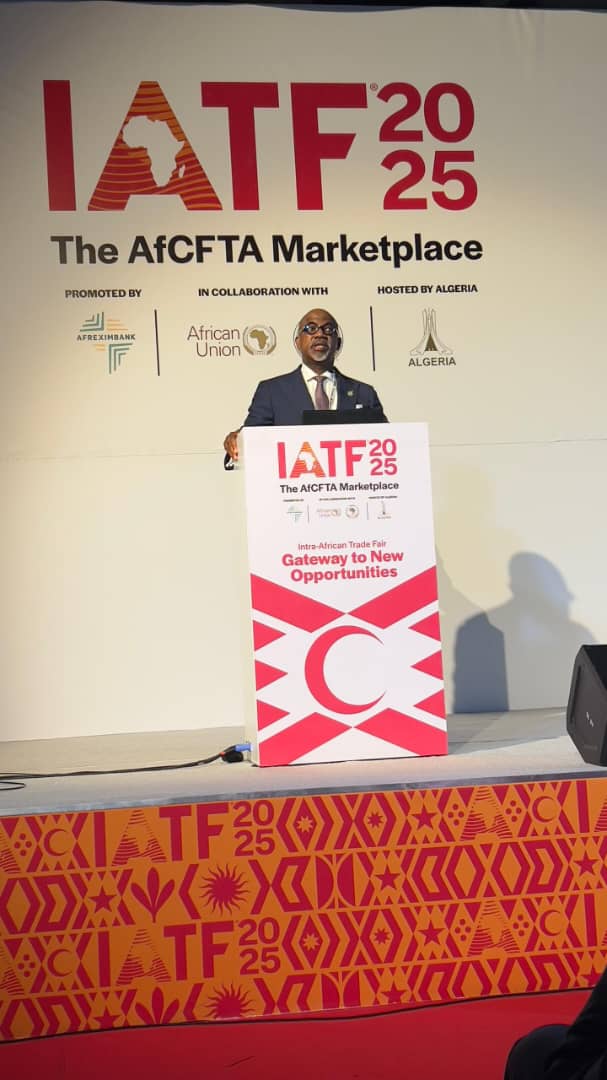The Ondo State Government has reiterated its unwavering commitment to combatting child abuse in all its forms, emphasizing a zero-tolerance policy aimed at safeguarding the rights and well-being of children across the state. This renewed pledge was made public during a recent address by the state’s Commissioner for Women Affairs and Social Development, Mrs. Olubunmi Osadahun, in Akure, the state capital. The announcement underscores the government’s dedication to creating a safe and nurturing environment for children, ensuring their protection from physical, emotional, and sexual abuse, as well as neglect and exploitation.
A Firm Stance Against Child Abuse
During her address, Mrs. Osadahun emphasized that the administration of Governor Lucky Aiyedatiwa is resolute in its mission to protect the most vulnerable members of society—children. She highlighted the government’s proactive measures to enforce laws and policies that prevent child abuse, while also ensuring that perpetrators face the full weight of the law. “The Ondo State Government is committed to ensuring that every child in our state grows up in an environment free from fear, violence, or exploitation,” she stated. “We have a zero-tolerance policy for any form of abuse against children, and we will continue to work tirelessly to uphold their rights.”
This commitment comes at a time when child abuse remains a pressing issue globally and within Nigeria. According to data from the United Nations Children’s Fund (UNICEF), millions of children worldwide are subjected to various forms of abuse, including physical violence, sexual exploitation, and neglect. In Nigeria, cultural, socio-economic, and systemic factors have contributed to the persistence of child abuse, making it imperative for state governments to take decisive action. Ondo State’s reaffirmation of its zero-tolerance policy signals a recognition of this challenge and a determination to address it head-on.
Legal Framework and Policy Implementation
The Ondo State Government has anchored its fight against child abuse on a robust legal framework, including the Child’s Rights Law, which was domesticated in the state in 2007. This law aligns with the provisions of the Child’s Rights Act of 2003, a federal legislation that outlines the rights of children to protection, education, healthcare, and a safe environment. The domestication of this law in Ondo State reflects the government’s commitment to aligning its policies with international standards, such as the United Nations Convention on the Rights of the Child (UNCRC).
Mrs. Osadahun noted that the state has established mechanisms to enforce the Child’s Rights Law, including the creation of specialized agencies and task forces dedicated to child protection. These agencies collaborate with law enforcement, non-governmental organizations (NGOs), and community leaders to identify and address cases of abuse promptly. “We have put in place structures to ensure that no case of child abuse goes unreported or unpunished,” she said. “Our goal is to create a society where children are safe, valued, and empowered to reach their full potential.”
The state has also implemented programs aimed at raising awareness about child abuse and educating communities on the importance of protecting children. These programs include workshops, seminars, and public campaigns designed to sensitize parents, guardians, teachers, and other stakeholders about the signs of abuse and the appropriate steps to take when it is suspected. By fostering a culture of vigilance and accountability, the government hopes to reduce the incidence of child abuse and ensure swift intervention when cases arise.
Addressing the Root Causes of Child Abuse
Child abuse is a multifaceted issue that is often rooted in socio-economic challenges, cultural norms, and systemic inequalities. In Ondo State, as in many parts of Nigeria, poverty, lack of education, and inadequate access to social services are significant drivers of child abuse. For instance, children from low-income families are often forced into child labor or early marriage to alleviate financial burdens, exposing them to exploitation and abuse. Similarly, cultural practices that normalize corporal punishment or gender-based discrimination can perpetuate cycles of violence against children.
Recognizing these underlying factors, the Ondo State Government has adopted a holistic approach to tackling child abuse. This approach includes poverty alleviation programs, access to quality education, and initiatives to empower women and girls. By addressing the root causes of abuse, the government aims to create an environment where children are less vulnerable to exploitation and harm.
One notable initiative is the state’s partnership with NGOs and international organizations to provide support for vulnerable children and families. These partnerships have facilitated the establishment of safe spaces, counseling services, and vocational training programs for children who have experienced abuse. Additionally, the government has prioritized the provision of free primary and secondary education, ensuring that children from disadvantaged backgrounds have access to opportunities that can break the cycle of poverty and abuse.
Community Engagement and Grassroots Efforts
The fight against child abuse in Ondo State is not limited to government initiatives alone. The state has actively engaged community leaders, religious institutions, and traditional rulers in its efforts to protect children. Mrs. Osadahun emphasized the importance of community involvement, noting that grassroots efforts are critical to the success of the zero-tolerance policy. “We cannot achieve our goals without the support of our communities,” she said. “Traditional rulers, religious leaders, and community organizations play a vital role in identifying and addressing cases of abuse at the local level.”
To this end, the government has established community-based child protection committees in various local government areas across the state. These committees are tasked with monitoring and reporting cases of abuse, as well as educating community members about child rights and responsibilities. By empowering communities to take ownership of child protection, the government aims to create a sustainable framework for preventing abuse and ensuring accountability.
Religious institutions have also been instrumental in promoting the government’s zero-tolerance policy. Churches, mosques, and other faith-based organizations have been encouraged to incorporate messages about child protection into their teachings and activities. This approach leverages the influence of religious leaders to challenge harmful cultural practices and promote positive parenting practices that prioritize the well-being of children.
Challenges in Combatting Child Abuse
Despite the government’s efforts, combatting child abuse in Ondo State is not without its challenges. One major obstacle is the underreporting of cases, often due to stigma, fear of retaliation, or lack of awareness about reporting mechanisms. In many communities, victims of abuse and their families may choose to remain silent to avoid social ostracism or because they lack trust in the justice system. Addressing this issue requires sustained efforts to build trust between communities and authorities, as well as increased awareness about the importance of reporting abuse.
Another challenge is the limited capacity of law enforcement and judicial systems to handle cases of child abuse effectively. In some instances, cases are delayed or mishandled due to inadequate training, insufficient resources, or bureaucratic inefficiencies. To address this, the Ondo State Government has invested in capacity-building programs for law enforcement officers, social workers, and judicial officials. These programs aim to equip them with the skills and knowledge needed to handle cases of child abuse with sensitivity and professionalism.
Furthermore, the state faces the challenge of balancing cultural sensitivities with the need to protect children’s rights. In some communities, practices such as early marriage or female genital mutilation are deeply ingrained, making it difficult to implement change without resistance. The government has adopted a diplomatic approach to this issue, engaging traditional leaders and community influencers to advocate for the abandonment of harmful practices while respecting cultural values.
Success Stories and Impact
Despite these challenges, the Ondo State Government’s zero-tolerance policy has yielded positive results. Over the past few years, the state has recorded a significant increase in the reporting and prosecution of child abuse cases, signaling a growing awareness of the issue among citizens. The establishment of child-friendly courts and specialized units within the police force has also streamlined the process of seeking justice for victims.
One notable success story is the rescue and rehabilitation of children who were victims of trafficking and forced labor in Ondo State. Through coordinated efforts between the government, NGOs, and law enforcement, several trafficking rings have been dismantled, and affected children have been provided with counseling, education, and vocational training to help them reintegrate into society. These efforts have not only saved lives but also sent a strong message that perpetrators of child abuse will face severe consequences.
The government’s awareness campaigns have also had a measurable impact. In rural areas, where access to information is often limited, community-based programs have empowered parents and guardians to recognize and report signs of abuse. Schools have also been integrated into the child protection framework, with teachers trained to identify and support students who may be experiencing abuse at home or in their communities.
The Role of Technology in Child Protection
In an era of rapid technological advancement, the Ondo State Government is exploring innovative ways to leverage technology in its fight against child abuse. For instance, the state is working on establishing a digital reporting platform that allows citizens to report cases of abuse anonymously. This platform, which is still in the development phase, aims to overcome barriers such as stigma and fear of retaliation by providing a safe and accessible channel for reporting.
Additionally, the government is collaborating with tech companies and NGOs to develop educational apps and online resources that provide information about child rights and protection. These tools are particularly targeted at young people, who are increasingly active in digital spaces. By harnessing the power of technology, the government hopes to reach a wider audience and empower citizens to take an active role in protecting children.
Looking Ahead: A Vision for a Child-Friendly State
As Ondo State continues its fight against child abuse, the government remains committed to its vision of creating a child-friendly state where every child can thrive. This vision encompasses not only the prevention of abuse but also the promotion of holistic development through access to education, healthcare, and opportunities for personal growth. By investing in the well-being of children, the state is laying the foundation for a brighter and more prosperous future.
Mrs. Osadahun concluded her address by calling on all stakeholders—government agencies, civil society organizations, communities, and individuals—to join hands in protecting the rights of children. “The fight against child abuse is a collective responsibility,” she said. “We must all work together to ensure that our children grow up in a world where they are loved, respected, and protected.”
Broader Implications for Nigeria
Ondo State’s zero-tolerance policy on child abuse serves as a model for other states in Nigeria and beyond. By prioritizing child protection and investing in preventive measures, the state is setting a precedent for how governments can address this pervasive issue. The success of these efforts depends not only on policy implementation but also on the active participation of citizens and the sustained commitment of all stakeholders.
As Nigeria grapples with the challenges of poverty, insecurity, and social inequality, the protection of children must remain a top priority. The Ondo State Government’s proactive approach demonstrates that with the right policies, partnerships, and community engagement, significant progress can be made in safeguarding the rights and well-being of children.
Conclusion
The reaffirmation of Ondo State’s zero-tolerance policy on child abuse is a testament to the government’s commitment to creating a safe and nurturing environment for its youngest citizens. Through a combination of legal enforcement, community engagement, and innovative initiatives, the state is taking bold steps to combat child abuse and promote the holistic development of children. While challenges remain, the government’s efforts are yielding positive results, offering hope for a future where every child in Ondo State can grow up free from fear and harm. As the state continues to lead by example, its approach serves as an inspiration for others seeking to protect the most vulnerable members of society.








